Sport and Competition
How Underdogs Can Compete and Win
Billions of years of evolution show the way.
Posted March 10, 2023 Reviewed by Davia Sills
Key points
- You can prevail over stronger opponents if you adopt clever strategies of prey animals.
- Billions of years of evolution of prey-predator interactions show how to avoid, distract, confuse, and disrupt superior adversaries.
- Sometimes, as with beetle larvae that eat the very frogs trying to eat them, you can transform yourself from underdog to favored champion.
As a social species, our central dilemma is that we often find ourselves in bitter competition with the very people whose goodwill and cooperation we depend upon. In the workplace, for instance, management encourages us to cooperate with co-workers while at the same time pitting ambitious co-workers against each other for raises and promotions.
To make matters worse, except for sports and warfare, society encourages us to mask our ambitions and competitive urges, cautioning us not to appear “selfish” or “aggressive” while at the same time lavishing praise (not to mention lots of money) on CEOs and celebrities who claw their way to the top. And often, people who come out on top are the ones most comfortable with confrontation—or are skilled politically—not necessarily the most competent or qualified.
So what do you do if you have dreams and ambitions but are uncomfortable with confrontation or worry about appearing aggressive or selfish? What if, as a result, you feel like something of an underdog in a dog-eat-dog world? How can you cut through all the crazy-making messages about succeeding without appearing selfish?
Animal survival shows us how.
One answer lies not in the realm of human behavioral science but in ethology, the study of animal behavior in the wild. The animal world is literally dog-eat-dog, with an enormous variety of “underdogs” who, despite being smaller and weaker than the predators intent upon eating them, survive and thrive.
Consider the octopus, which is no match for the many sharks in her neighborhood. To eat, she must venture out of her grotto occasionally but would be quickly gobbled up if a hungry shark spotted her. So, to avoid that fate when caught out in the open and sensing danger, she covers herself with shells and other seafloor debris to tell the shark, “Nothing to see (or eat) here; keep on going.” The shells also act as a protective shield if the ruse fails.
The mimic octopus, shown below as taking on the form of a spiny, venomous lionfish, also disguises itself as the sea floor and other unappetizing creatures, such as sea snakes and jellyfish.
.jpg?itok=Sjnl5fmE)
Overmatched humans have used similar “camouflage” tactics to come out on top. For instance, the heat-seeking sidewinder missiles that just shot down all those bothersome balloons and were chosen for the task because they are, by far, the most successful air-to-air missiles ever invented almost never made it out of the Navy’s R&D lab because better-funded sponsors of a competing radar-seeking missile succeeded in getting the sidewinder project killed. But the underdog inventors of the sidewinder refused to let their baby be killed. Instead, they continued to develop the sidewinder under the guise of a modest missile warhead fuse improvement initiative.
This “nothing-to-see-here” strategy gave the sidewinder team time to perfect the missile, which ultimately won a head-to-heat “shoot-off” competition with the much better-funded, officially sanctioned radar-guided competitor.
Essentially, the sidewinder missile advocates borrowed a page from the octopus’s hide-in-plain-sight playbook to survive and thrive against a vastly superior opponent.
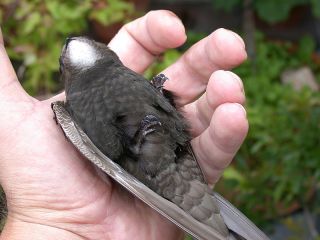
Other strategies for underdogs
If you are looking for ways to succeed against long odds but don’t think “camouflage” will work for you, here are other tried-and-true “equalizers” proven over billions of years of evolution.
Play dead
This bird mimics a dramatic death, encouraging his predators to search for healthier meals elsewhere. Lulling a domineering workplace adversary into believing they’ve won (and metaphorically left you for dead) could be a way to level the playing field for you as well.
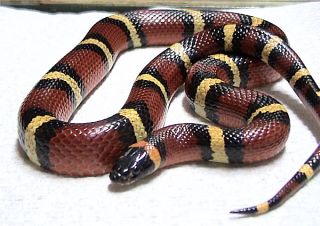
Look dangerous
Animals such as this harmless Mexican milk snake, which looks like a highly venomous coral snake, survive by scaring away predators who would otherwise eat them, such as carnivores and raptors.
How might you take on the appearance of being untouchable to discourage more powerful human competitors?
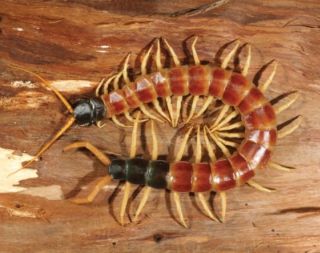
Take hits where it won’t kill you
It’s very hard to differentiate the head (top) from the tail (bottom) in this bug, so predators often strike at the tail, failing to kill the creature and allowing it to escape.
You, too, can hide your most vulnerable features, taking metaphorical “hits” where the harm will be minimal.
Confuse your adversary
Tiger moths emit clicks that jam the sonar of bats hunting them.
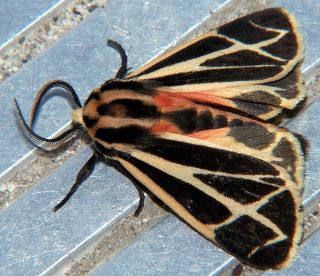
I knew a small firm lawyer who bogged down and “jammed” legal teams of much bigger, bullying competitors with so much paperwork during legal discovery processes that the bigger company eventually gave up their bullying.
Turn the tables
Beetle larvae (shown in frog’s mouth below) emit clicks to attract frogs, who try to swallow the larvae, only to discover—too late—that the larvae have attached to their mouths and started to eat them from the inside out.
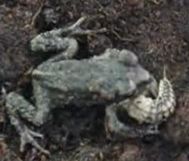
Cyber defenders who are otherwise overmatched by persistent and competent hackers sometimes discourage those hackers by seeding their networks and data files with malware that hackers unwittingly download while stealing data, wreaking havoc on those hackers’ computers.
So, if you feel like an underdog and are inclined to give up, first, go over this list and think about how—like the sidewinder team—to translate one or more of the ideas into an effective human equivalent. You could, against all odds, prevail, leaving your competitors shaking their heads and muttering to themselves, “Wow, that person (you) is an animal!”




